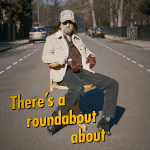1 in 5 drivers crash in the first year after passing their test. Our research revealed that young drivers often feel vulnerable on the road. This can lead to them driving more defensively and taking unnecessary risks to over-compensate for their inexperience.
We know it takes real road experience to become a good driver. Launched 5 March 2019, our latest campaign encourages new drivers to ‘learn the ways of the road’ with the help of the Road Whisperer.
The mysterious Road Whisperer – think ‘The Dude’ from The Big Lebowski – will deliver tips and advice around some of the most nerve-wracking moments that new drivers face.
We’ve created a suite of tips that will run throughout March across cinema, video on demand and social media. The tips include driving on country roads, on motorways, at night, in light rain, on roundabouts, the importance of checking your tyres, and looking out for vulnerable road users.
Our launch materials are available below.
We’ll be making the remaining assets available throughout March. Assets supplied are free to use for educational purposes, however if used in a paid-for capacity (particularly outside of the national campaign period) usage fees may apply.




